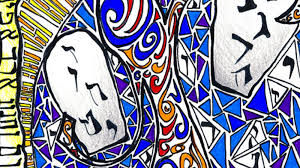D'var Torah for כִּי־תָבוֹא / Ki Tavo 5785 13 September 2025 / 20 Elul 5785
- Rabbi Stephen Epstein

- Sep 4, 2025
- 3 min read

Parashat Ki Tavo is the 50th weekly Torah portion in the annual Jewish cycle of Torah reading.
Ki Tavo (“When You Come”) opens by describing the ceremony of the first fruit offering (bikkurim) and the declaration made upon the completion of tithing. It concludes with a detailed description of blessings that follow obedience to God's laws and curses that come with their desecration. [1]
Triennial year 3
1: 27:11-28:3 · 19 p’sukim
2: 28:4-6 · 3 p’sukim
3: 28:7-11 · 5 p’sukim
4: 28:12-14 · 3 p’sukim
5: 28:15-69 · 55 p’sukim
6: 29:1-5 · 5 p’sukim
7: 29:6-8 · 3 p’sukim
maf: 29:6-8 · 3 p’sukim
Haftarah: Isaiah 60:1-22 · 22 p’sukim
Commentary and Divrei Torah
Hertz Chumash: pp. 852 – 857 Triennial Year 3 (Full Kriyah pp. 840 – 857)
Artscroll Chumash: pp. 1060 – 1067 Triennial Year 3 (Full Kriyah pp. 1046 – 1067)
Once more we have the “Tohahah”, the Warning. It is a dire admonition to Israel if they forsake Torah and do not observe the commandments. First, of course, are the rewards for complying. Then Torah goes on with consequence after consequence if they don’t.
This is not surprising. How many of us have warned our children of what would befall them for not following rules? We tell them to eat good food, do their homework and chores, and then they can play, watch TV, etc. But if they don’t…and we go on and on with all the punishments that await them. We, and Hashem, do this to make the point.
It has been said by some that the “Tohahah” is a two thousand year punishment for the Golden Calf. That is hard to understand after it’s been said that bad behavior is visited only unto the third and fourth generation (it takes that long for the family to wake up and realize they’ve been doing the wrong things) and children are not held responsible for parents’ behavior. It’s hard to believe that the Merciful One would carry out such an extended vengeance. It’s also difficult to try and second guess Hashem.
Nevertheless, we need to pay attention to the “Tohahah” today and know that doing the right thing will result in good times, whenever that will be.
Ki Tavó 5785 / כִּי־תָבוֹא
13 de septiembre de 2025 / 20 de Elul de 5785
Parashá Ki Tavó es la quincuagésima porción semanal de la Torá en el ciclo anual judío de lectura de la Torá.
Deuteronomio 26:1-29:8
Ki Tavó (“Cuando vengas”) comienza describiendo la ceremonia de la ofrenda de los primeros frutos (bikurim) y la declaración que se hace al completar el diezmo. Concluye con una descripción detallada de las bendiciones que resultan de la obediencia a las leyes de Dios y las maldiciones que conlleva su profanación. [1]
Tercer año trienal
1: 27:11-28:3 · 19 p’sukim
2: 28:4-6 · 3 p’sukim
3: 28:7-11 · 5 p’sukim
4: 28:12-14 · 3 p’sukim
5: 28:15-69 · 55 p’sukim
6: 29:1-5 · 5 p’sukim
7: 29:6-8 · 3 p’sukim
maf: 29:6-8 · 3 p’sukim
Haftará: Isaías 60:1-22 · 22 p’sukim
Comentario y Divrei Torá
Sefaria OU Torá, Rabino Sacks z”l, Seminario Teológico Judío
Hertz Jumash: Págs. 852 – 857 Año Trienal 3 (Kriyah completa, págs. 840 – 857)
Artscroll Jumash: págs. 1060 – 1067 Año Trienal 3 (Kriyah completa, págs. 1046 – 1067)
Una vez más tenemos la “Tohahah”, la Advertencia. Es una severa advertencia para Israel si abandonan la Torá y no observan los mandamientos. Primero, por supuesto, están las recompensas por cumplir. Luego, la Torá continúa con consecuencias tras consecuencias si no lo hacen.
Esto no es sorprendente. ¿Cuántos de nosotros hemos advertido a nuestros hijos sobre lo que les sucedería si no siguen las reglas? Les decimos que coman bien, hagan sus tareas y quehaceres, y luego pueden jugar, ver televisión, etc. Pero si no lo hacen… y seguimos con todos los castigos que les esperan. Nosotros, y Hashem, hacemos esto para que… Punto.
Se ha dicho que la Tohajá es un castigo de dos mil años por el Becerro de Oro. Esto es difícil de entender después de decir que el mal comportamiento solo afecta a la tercera y cuarta generación (ese tiempo tarda la familia en darse cuenta de que ha estado haciendo lo incorrecto) y que los hijos no son responsables del comportamiento de los padres. Es difícil creer que el Misericordioso lleve a cabo una venganza tan prolongada. También es difícil dudar de Hashem.
Sin embargo, debemos prestar atención a la Tohajá hoy y saber que hacer lo correcto traerá buenos tiempos, cuando sea que estos ocurran.





Comments